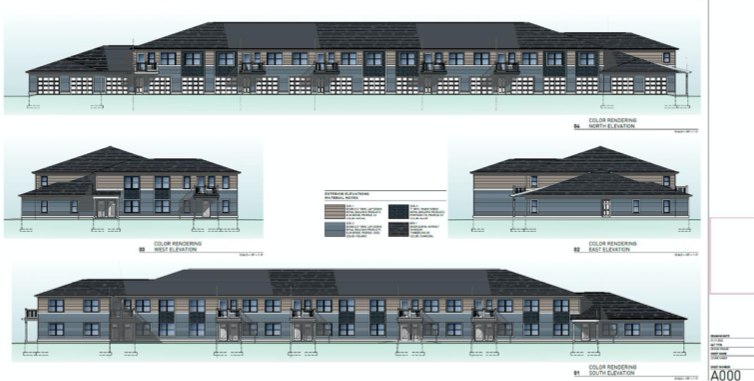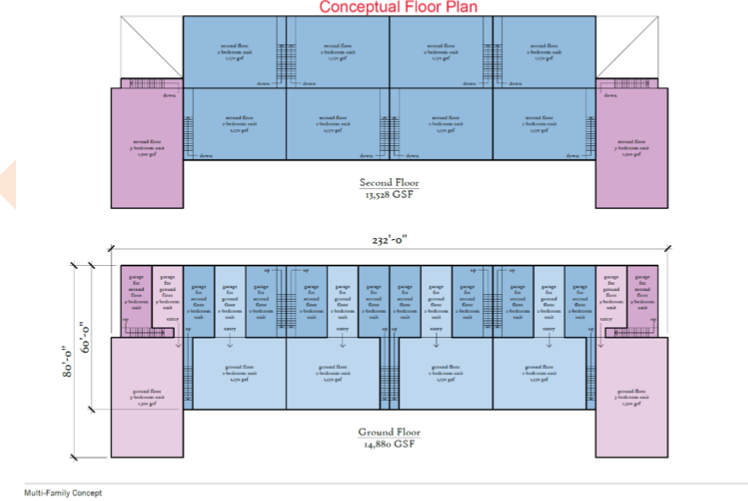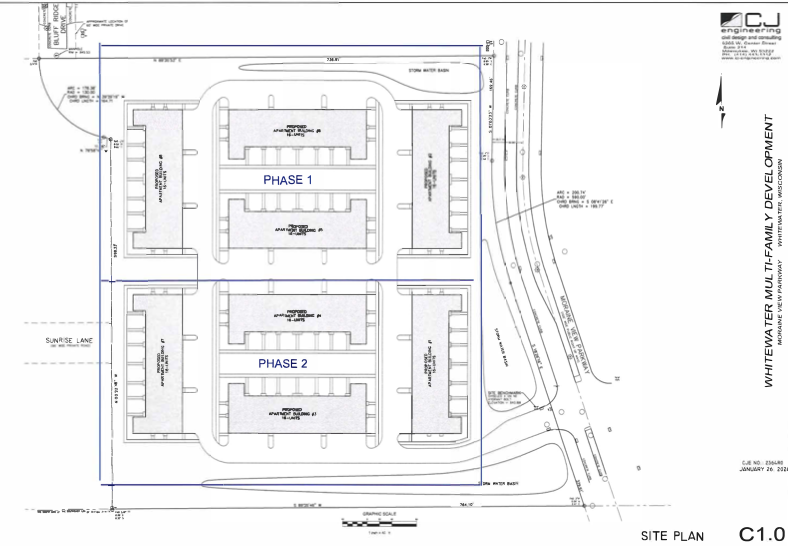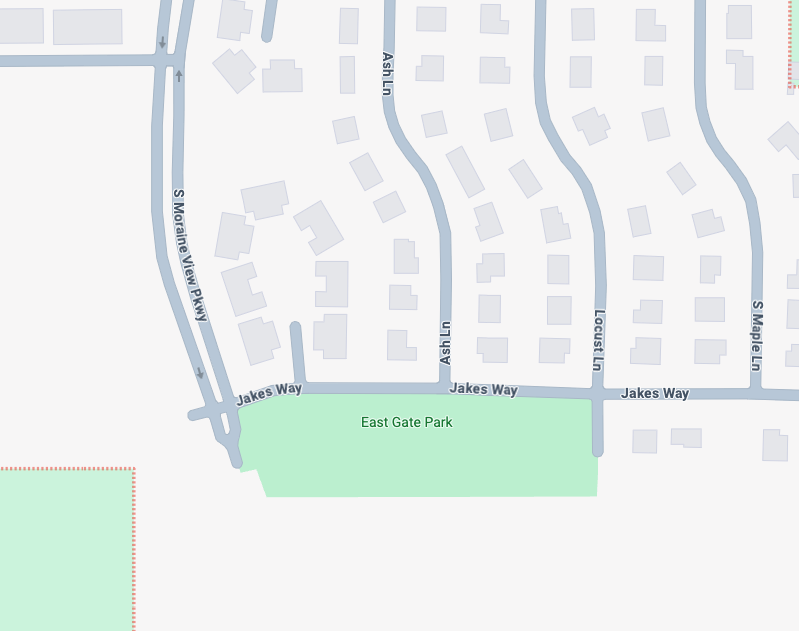Council approves development agreement for multifamily project on Moraine View Parkway
- Home
- Council approves development agreement for multifamily project on Moraine View Parkway

Council approves development agreement for multifamily project on Moraine View Parkway
By Kim McDarison
Members of the Whitewater Common Council Tuesday approved an incentive package for a 128-unit multifamily development project.
The project’s developer, listed on the agreement as Slate Real Estate, Inc., with communications directed to Chris Slater, Hartland, will next go before the city’s Plan and Architectural Review Commission for final site plan approval and approval of a required conditional use permit.
The project, which will be located on an approximately 10-acre parcel on Moraine View Parkway, was approved Tuesday by a 6-1 vote, with council member Neil Hicks voting against the measure.
Discussion regarding the development began early in the meeting, when Council President Patrick Singer presented a motion, asking the body to move an item offering the public a chance to comment on the development, originally placed near the end of the agenda and following a closed session, into an earlier spot on the open session agenda.
A closed session on the agenda was placed for the purpose of discussing the proposed development agreement.
Council voted unanimously to move the item, with Singer noting later in the meeting that the item would remain available for discussion following the closed session, offering members of the public two opportunities to address the topic.
Items planned for consideration when council reconvened into open session following closed, included discussion about the proposed development to be located on Moraine View Parkway, led by the city’s economic development director, along with consideration and possible action regarding the development.
In advance of public comments, Singer said, as a matter of context, the proposal had already come before the city’s Plan and Architectural Review Commission for conceptual review and had come before the city’s Community Development Authority (CDA), for review of the development agreement, which included the development itself and a plan to incentivize the project. He further noted that the project, would the council vote to approve it, would return to the city’s Plan and Architectural Review Commission for approval of the required conditional use permit and a final site plan. He said that the council, during its closed session, would consider the details of the development agreement.
The CDA, last Thursday, voted 4-3 in favor of recommending approval of the development agreement to the council, with board members Jon Kachel, Jeff Knight and Neil Hicks casting ‘no’ votes.
An earlier story about the CDA decision regarding the project is here: https://whitewaterwise.com/cda-recommends-approval-of-128-unit-multifamily-development-on-moraine-view-parkway/.
Public comments
Brian Zomer, a Whitewater resident living on Jakes Way, which intersects with Moraine View Drive, asked council members to consider postponing a vote on the project’s development agreement, citing what he said were “a number of issues,” further noting traffic and safety as cause for his concerns.
Additionally, he said, he would prefer to see single-family homes built in his neighborhood, and he was not a fan of the appearance of the proposed structures. He cited apartments on Bluff Road as similar to the type of multifamily project he would prefer.
Doing some math, he said, with 128 units proposed for construction, with just one resident in each unit, traffic in the area would increase by 128 vehicles. If two or three individuals lived in the units, he asserted as many as 300 vehicles might be added to the mix.
He said he was unsure of access points into the development, and worried that egress might be provided through the Bluff Road apartments, which, he said, would add to his concerns over safety, as he has witnessed children playing in the area’s side streets. Further, he said, a stop sign in the area is not often obeyed by motorists, which he saw as a contributing safety factor would the area become used by more travelers.
Nancy Boyer, also a resident of Jakes Way, said she had talked with “several people all around me,” noting that “no one” had heard about the proposed development before Monday.
“We all have a lot of questions and we would really like you to take the time and not vote tonight until we can get our questions answered,” she said. Citing residents’ questions, she asked: “Where are these people coming that are going to rent these 128 units? Is the school going to be able to handle 128 more families? Is the police department going to be able to handle 128 new families? Is it going to be low income? Is the city going to put in a lot of money? Is it going to raise our taxes?”
She asked council members to hold off from voting on the development agreement.
Jim Heckendorf, a resident of Fontana who owns property in Whitewater, he said, and is an owner of JLCH Properties, LLC, and the president of the Whitewater Renters Association (WRA), said that he represented “over several hundred taxpaying properties, residential and commercial.”
Additionally, he said: “The WRA has an open records request that seems to be stalled with the city attorney regarding Kowalski property and the housing study. We request the city to provide this information and allow us two to three weeks to hold additional discussions, public discussions, as seems to be the concern, and then we can talk about true impacts of the subsidies, if any subsidies are to be given, the tax impacts on the residents.”
Whitewater Resident and former CDA member Larry Kachel said: “It’s hard to comment publicly when we don’t know what it’s about.”
He asked why, in his opinion there was a seemingly “rush for a vote on dollars?”
Said Kachel: “I can only assume we’re talking about millions of dollars of a subsidy, but also the subsidies are still not known in the Whitewater community, and many questions still need to be answered before the city council should take a vote. It has to be an educated vote on this topic.”
Kachel said that he has consistently held the position that private landowners should be able to build their desired projects on their properties, but, he added, “as long as no taxpayer funds are used and zoning requirements are complied with. I feel that way about most legitimate businesses.”
He said that there has been some discussion within the community that single-family housing is needed.
“Everybody agrees on it,” he said, adding that he believed that the city’s TID (tax incremental financing district) money should be used to support single-family projects.
“The biggest complaint from community members in Whitewater is not that we have too few apartments. UW-Whitewater is our largest employer, by far. They are in decline in terms of enrollment,” Kachel said, adding that the university’s enrollment peaked in 2016, with, he said, “roughly 11,380 undergraduate students here, and now they are down to 9,119, that’s a drop of 20%. The chancellor just spoke about a week ago, two weeks ago, that they are going to have fewer freshmen enrolling this fall. He’s expecting enrollment to go down likely through 2028. It has to do with the high school graduation cliff for those of you that might be familiar with that topic.”
Kachel also addressed his concerns about taxes, saying: “The average single-family homeowner in Whitewater has seen the city portion of their tax bill increase by 27% just over the past two years. Potential referendums are looming for both the city and the school district.”
He asked: “Are we making Whitewater too expensive tax-wise for working families to live in it?”
He said that by his calculations, the city would not receive a tax benefit from a proposed TIF-incentivized project until the money used is paid back, which, he estimated, could take nine years. If additional projects are approved for development within the same TID, he asked: Is that going to extend the time out until increments earned come back to the school district and the city?
Kachel said the city council might be well advised before voting to meet with its financial consulting firm, Ehlers, saying that the firm “needs to give us a full explanation about how it’s going to affect both the short-term and the longterm of the TID, because those community services still have to be paid for. And while they are paying back that loan or the money that they’re getting, the rest of the community has to pick up that slack and pay more in taxes.”
Bob Freiermuth, who said he owned HSI Rentals LLC, additionally noted: “My information that I have is that as a developer, and one that puts money into a project, and has been in front of the Planning Commission multiple times, and looking at spending my own money and not looking to the city to partake in that venture, it’s not fair. It’s really not fair to other developers to have that kind of TIF (tax incremental Financing) money being locked up for 20 years, and it’s at the expense of the taxpayers. And why? for the development of this housing? If this housing, and I have no problem with more housing here in this community, bring it on, I can compete, but the thing that I’m trying to get at is that TIF money should not be used for it. Period.”
He added that from his perspective, if a project cannot receive enough financing through a bank, he said, “you don’t build it.”
Further, he said: “I think we have a population problem that no one’s really looking at. That’s why we have problems with Social Security and all these other things. People are not having kids.”
Brad Ceranske, describing himself as a “landlord here in Whitewater,” said: “I just think it’s unfair to give TIF money to a developer, which is going to cost me way more in taxes because they’re going to have to pay for all the other services. So, it’s like saying this: You keep paying your taxes and then we are going to take some of your tax money and give it to your competition so that (he) can build brand new stuff.”
He said, that for him, the issue was about democracy, and, addressing the council, he said, “you guys (say) well, yeah, democracy, except for when we want to grow the town, you guys can burden the load, or more of the load, for building this town. How does that make sense to the average person?”
He said workers in the community who might earn $22 an hour struggle to hold on to their homes in Whitewater, and their taxes have gone up over the last few years by 22%.
“And now the city’s assessing every year, and that’s not for the benefit of the taxpayer, it’s for the benefit of the city. So you’re just going to keep raising taxes and supporting some developer to come in and develop property? If he wants to develop a property, let him come in and develop the property. Let him pay for that. That’s how business should work,” he said.
He asked for an even playing field.
Whitewater resident Jeff Knight said he serves on the city’s CDA, further describing himself as an individual with 26 years of CDA service when combining his Whitewater experience and experience gained through CDA service in another community.
Talking about TIDs, he said: “a lot of this has evolved, there’s changes, so I’m not suggesting to you that I’m any expert on some of the current location issues, but I really think it’s important to have the CDA and the city council have hours to really talk about this in detail. But let me talk a little bit about why I’m concerned: After the presentation that was made (to the CDA last Thursday), I voted against it (the development agreement for the 128-unit project) because I didn’t think it passed the ‘but-for.’”
Knight described a “but-for” clause as one, within TIF agreement language, that seeks to establish that a development could not be built without the use of TIF incentives.
Addressing a need for TIF incentives, Knight said area developer Ryan Hughes, with whom he had recently spoken, “just built two properties, very nice, probably nicer than what you got in front of you now, and when he came before the city council, he presented those as workforce housing. There was no city financing involved, and the last one was just completed this year. The other building in town that was built was senior housing on the lake by the Kachels, and there was no money in that, so it’s awfully close to starting this new one up, and all of a sudden there’s an urgent need where as you’ve got some fairly major developments in town that came forward and said that they didn’t need it.”
Further, he said, he called a developer in Elkhorn who was in the process of building multifamily housing to ask if the project required TIF money to build. According to Knight, that builder said that the rental market was “stronger than it’s ever been, our rents are high, we don’t need any incentives for multifamily.”
Looking locally, he said, “you’ve got a developer in (Whitewater’s TID No.) 11 that wants to build single-family housing — also had a multifamily in there, and I just asked a dumb question: Is there going to be a need for TIF for your multifamily? And the answer I got was no.
“I think the problem I’ve got with this for the single-family that they want to develop, there is a need. There’s a serious need for single-family development in this town, and there’s a serious need for affordable single-family housing. I think we ought to be prioritizing single-family housing. I know three projects in town that are single-family in nature and they are not in front of us. Yet, one of them is just waiting for a reply on what would be the TIF engagement on that one. Now that’s in (TID No.) 11. So let’s talk about 11. This project would pay off all the debt in a period of time, but when it’s built, it’s the highest density type project you can do. So why am I saying that? Because a high-density project …”
With three minutes allotted to each speaker, Knight was informed that his time was up.
Another speaker, who was awaiting his time at the podium, offered to give his time to Knight.
Singer disallowed the request, saying that each person would be allotted three minutes.
Singer then told Knight that his time had expired.
Unable to give his time to the previous speaker, the new speaker came forward and said that he once owned a duplex lot on Tratt Street. He added: “actually it was a single-family home lot,” and, he said, “I got it back in 2013. It was like fighting tooth and nail to get a duplex built on it; it was zoned R-2, and it is for single-family or a duplex family. You guys let a guy build a four-family on it. I don’t know why you did that.”
Whitewater resident Susan Chandler, arriving at the podium, said that she had attended the city’s Development Roundtable Discussion held last month, and she had recognized herself as the only “citizen” participant who did not additionally identify themselves as someone with a larger investment, such as being a landlord or developer, or having some other title.
“I was surprised that there were no other community people there, but I enjoyed the whole thing,” she said. She offered thanks to the city officials who organized the event.
Of the event, she said: “It had vision, it had forward thinking, there were really good ideas being presented. Whitewater needs to act boldly, and make this community vibrant.”
Among ideas, which, she said, for her, offered a “wow” factor were “walkable neighborhoods, a disciplined approach, a well-managed hierarchy of housing, and if we do this, we can draw people from other communities. We are ripe for bringing in population. We have jobs, but we need the population for the jobs. The population can’t live here because we don’t have enough variety in the housing.”
The resident said that after she attended the roundtable event, she visited Eau Claire where she said she was “gobsmacked.”
Describing Eau Claire, she said: “it was like they had read that report and put it into action. Everywhere we went in that city, there were townhouses being built, there were single-family houses, there were multiple duplex apartments, walkable communities. They had a subdivision on one side of a four-lane highway with an underground that the kids could walk to the other side to the middle school.
“It was vibrant, and beautiful, and four people from all over the state came together, and all we could talk about was ‘look at Eau Claire.’ I was thinking specifically about this thing, this plan, where they said all of southeastern Wisconsin needs housing, that this is a vital thing. Whitewater and Elkhorn, we are it, and I ask you, look at those reports and believe them, because they were really awesome.”
Comments from council members
The council was next offered an opportunity to speak about the topic.
Councilwoman Brienne Brown said: “It’s my understanding that the TIF funding requires housing, and that’s part of what we invested in, was the fact that we are trying to get more bodies living in Whitewater. So my feeling about this is — I’ve been saying this for years — there are workforce people who make not a lot of money, you know, 20 bucks an hour, or they work at the university, etc. They don’t live here. They don’t live here because there is no housing here.”
Brown said that, from her perspective, the data about housing trends backs up her belief that Whitewater needs more housing, and she said, all kinds of housing.
“We need apartments. We need apartments for working people, and,” she added, citing the 129-unit development, “I really think this is an excellent idea to make sure that we actually start creating the density that we have not been doing for a decade. And we have not created any density and we are suffering for it. And this has a lot to do with the fact that our assessments on our buildings are going up because there’s no new housing here. So if we get new housing, everybody’s taxes go down because their assessments go down. It’s a win-win for everybody.”
Addressing Singer, City Manager John Weidl asked, as a matter of clarification, if the discussion component about the item would return to its original location at the end of the agenda following the scheduled closed session.
Singer said it would.
“We will have discussion after our closed session which is about negotiation of any potential financial incentive, and as I pointed out, the Plan and Architectural Review Commission will also be hearing on the actual use, and site plan, and conditional use permit, so that’s another avenue as well. I think, especially in the neighborhood, maybe some outreach to better educate what’s going on, and be very open about what the proposal is, from not necessarily the financial side, but from the site itself, and the volume, and traffic patterns, and all the stuff that was brought up as a concern,” Singer said.
Discussion after closed session
Following the closed session, with council reconvened into open session, Singer opened discussion about the development agreement and TIF incentives for the proposed development.
He next asked the CDA’s economic development consultant Kristen Fish-Peterson to give an overview of the proposal and the development agreement.
Describing the project, Fish-Peterson said it is composed of eight buildings, each with 16 market rate units, which will be constructed at the intersection of Moraine View Parkway and Jakes Way.
She said the property is a little more than 10 acres, upon which development will begin this fall, with a completion date set for the fall of 2025.
Describing the financial package, Fish-Peterson said the total construction estimate is $31.9 million, and, she said, “the developer is expressing that this project would not take place without an incentive. So the request is for approximately $5.1 million to be paid out as a pay-as-you-go agreement. The project will have a minimum assessed value of $24.6 million, and that will be guaranteed by the developer with a pilot payment. And if that assessed value is not met, the incentive would be 85% of the increment for the first 10 years, and 60% of the increment in the remaining four years of the life of the district. This would — there are no up-front expenses for the city of Whitewater. The district will remain in the black for the entire life of this project within the district because of this project. It is an eligible TID project within the project plan. Project expenses are categorized as grants to developers, and that language is in the TIF plan.”
Singer asked about the TID No. 11 plan, and any need for review.
Fish-Peterson said the development fit within the scope of the TID No. 11 plan, adding that the Joint Review Board does not review or approve individual agreements.
“It approves the plan up front, and that’s what’s required by law, but the Joint Review Board is not required to review every development agreement within a district,” she said.
Singer asked: “Are they required to have that provided to them once that development agreement would be passed?”
Said Fish-Peterson: “It can be, but it’s not required.”
Weidl said the Joint Review Board would receive an update about the agreement during its annual meeting.
“I do want to note that the incentive total is 16% of the total project costs, which is a reasonable investment for a community,” Fish-Peterson said.
Singer asked: “And in your experience, are our — obviously this is maybe new frontier for Whitewater, in terms of using TIF in this manner — but are other communities using this as well?”
Fish-Peterson said they were. She listed several such communities, including: Waukesha, Janesville, Green Bay, Watertown, Wausau, and, she said, “all of the municipalities surrounding the city of Madison.”
Singer asked council members if they had questions.
No members of the public requested an opportunity to speak.
With no questions posed by council members, the body voted to approve the project’s development agreement with the incentive package as presented and outlined at the podium by Fish-Peterson.

A graphic, as supplied within the development agreement between the city of Whitewater and Slate Real Estate, Inc., shows the exterior elevations proposed for each of eight buildings which will, in total, comprise a 128-unit multifamily development on the city’s southeast side.

As provided within the project’s development agreement between the city of Whitewater and Slate Real Estate, Inc., a graphic shows the conceptual floor plan of the proposed units.

A graphic, as provided within the development agreement between the city of Whitewater and Slate Real Estate, Inc., shows the conceptual site plan for the eight-building, 128-unit multifamily housing project. A final site plan will next be reviewed by the city’s Plan and Architectural Review Commission.

A map shows the location of the Slate Real Estate, Inc., development anticipated to begin construction this fall, with an anticipated completion date of the fall of 2025. The project will be located on the city’s southeast side, near the intersection of Moraine View Parkway and Jakes Way.
This post has already been read 2450 times!
Kim
Our Advertisers
Most Read Posts
- No results available